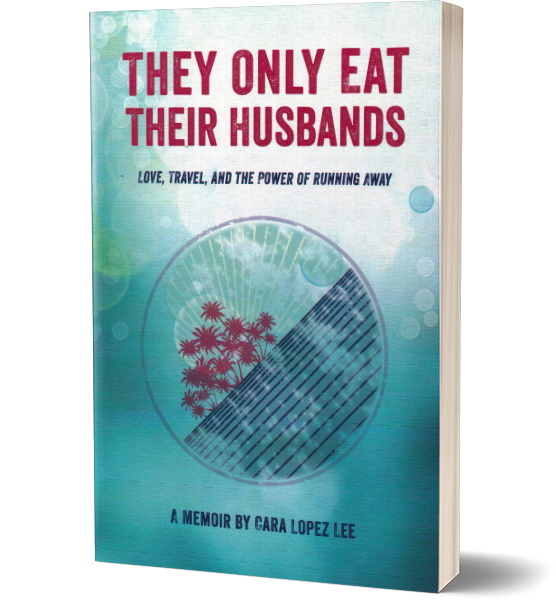When I tell people I’m an avid traveler, I say so with both pride and shame. Pride: because world travelers tend to be among the most environmentally conscious, culturally sensitive, socially progressive people you’ll ever meet. Shame: because, as a traveler, I cause more damage to the environment, and more disruption in the lives others, than people who stay home.
When I trekked the Annapurna Circuit in Nepal’s Himalayas, the owners of the teahouses sometimes cut down more of the forests than they should to fuel the cook-fires that fed us trekkers. Every time I’ve returned to Bucerias, Mexico, to avoid the crowds and commercialism of Puerto Vallarta, I’ve joined those guilty of turning a once-quiet town into a burgeoning development, polluted by constant construction. If we move on to the next unspoiled Mexican town, will we then be the leading edge of the next wave to turn colorful local culture into crass capitalist homogeneity?

Every time I’ve returned to Bucerias, Mexico I’ve joined those guilty of turning a once-quiet town into a burgeoning development.
I do try to keep my tourism low-impact. Consider this comment from Tuk, my guide for a trek in the hills near Pai, Thailand.
“On my trek, you must agree not to buy souvenirs from the tribes,” Tuk said. “Do not give candy or money to the children. This encourages the farmers to abandon their fields and their way of life. Instead they think they can make money as a tourist attraction, but this does not always make a good life for them, and much is lost. We have seen this happen in Thailand.”
But low-impact tourism still has an impact. Consider my reaction:
To us, the biggest selling point is that we’re visiting hill tribes who seldom receive foreigners: the Lisu, Karen and Lahu. They’re not yet jaded by the tourist dollar. The irony, that we’re seeking to make contact with this unspoiled culture by using our own tourist dollars, is not lost on me. Aren’t we the beginning of the process that will ultimately erode their culture as well? Do we really think Tuk’s policy can hold it back? How long can these people hide?
It’s easy to romanticize the life of the poor farmer or hunter, to idealize his connection to the land and his community, to bemoan the urbanite’s lack of harmony with the earth and his neighbors. But can we blame the poor farmer or hunter if he discovers the possibility of an easier life—with clean water and grocery stores, TVs and computers—and decides to take his chances on seeking a route to that life?

The irony, that we’re seeking to make contact with this woman’s unspoiled Lisu culture by using our own tourist dollars, is not lost on me.
Please don’t misunderstand me: I’m neither ready to stop traveling, nor to ask that of you. Traveling can benefit the traveler. Everyone can use a getaway to recharge their batteries and remind them of what’s really important: our relationships with other people, with the world, with ourselves—and with our God, if we believe in one. For me, travel has been a path toward independence, and away from co-dependency. My life has become more harmonious, thanks to the chance to view that life through the prism of a wider world.

Everyone can use a getaway to remind them of what’s really important: our relationships with other people, with the world, with ourselves.
Traveling can also benefit those we visit. It creates jobs and encourages spending in regions that often need the boost. It fosters understanding between people of different cultures who might otherwise be tempted by easy stereotypes. It allows us to witness social injustice and environmental damage firsthand and spread the word to others. An elderly man I met in Spain said he thought it would be a better world if everyone spent time visiting another culture. “If everyone did this, maybe we would all understand each other more, and not fight so much.”

Traveling can also benefit those we visit. It creates jobs and encourages spending in regions that often need the boost.
Still, with all the talk of climate change, I often think about the thousands of airliners filling our skies with greenhouse gasses every day. With all the talk of the war on terror, I often think about America’s relationships abroad. So, I try to do what little I can to mitigate my negative impact as a traveler. I’ll admit it’s not much…
When I’m home: I usually ride my bike for errands and appointments that are under 10 miles round-trip, so long as it’s daytime and the weather is above freezing with no precipitation. I sponsor a child in Thailand. I avoid chemical cleaning products. I take short showers. I try to use both sides of a sheet of paper. I turn lights off when I leave a room. I recycle. I try to remember to use my shopping tote instead of plastic bags.
When I visit other countries: I try to buy souvenirs directly from those who make them. I try to avoid souvenirs made of non-renewable resources. (Sadly, I got so excited about some beautiful hardwood carvings in Africa a few years back, that I neglected to consider this.) I walk a lot. I learn at least a few phrases of the local language, and take time to talk to local people, instead of sticking to sights and tour groups.

When I visit other countries, like Peru, I take time to talk to local people, instead of sticking to sights and tour groups.
Last week, I posted a photo of a fisherman repairing his canoe on the shore of Africa’s Lake Malawi. That was Andrew, a married father of three. We had a brief conversation. He said it took him two weeks to carve his dugout from a single log. He heated a pot of tala, or mud-based sealant, over a small fire. Then he used the tala and bits of metal to repair cracks in his canoe. With care, such a boat can last three years.

Andrew said it took him two weeks to carve his dugout canoe from a single log.
As evening gloom gathered over the lake, his friends gathered around the fire to chat. Feeling intrusive, I began to leave, “It was very nice to meet you, but I’m afraid I’m keeping you from your work.”
“No, you are not keeping me from work,” Andrew said. “I am finished. Now we are just waiting for the time.” He gestured to his friends and to the sun. He said he appreciated the chance to talk to a visitor. He explained that most visitors never bothered to talk to people in his village. “I think they do not want to talk to the black people.”
“Why not?” I asked.
“I don’t know. I think maybe they are too ambitious. They don’t have time for people like us.”

Andrew explained that most visitors never bothered to talk to people in his village. “I think they do not want to talk to the black people.”
He said it was good to talk to foreigners because he learned a lot. So did I. I hope that his straightforward words, his handmade boat, and his bountiful lake, remain clear in my mind, every time I make a decision that affects the world I live in, and the people who share it.
***
What do you do to mitigate your negative impact and increase your positive impact as a traveler?




